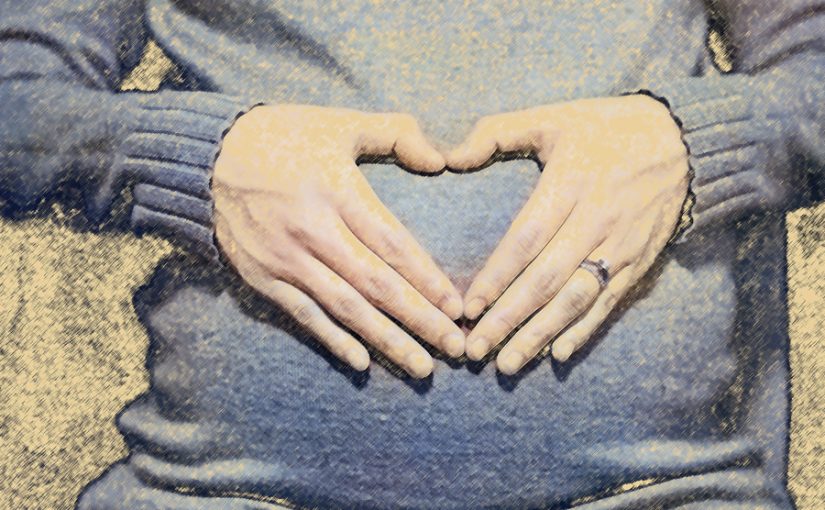A homily for the Fourth Sunday of Advent, December 18, 2022
Is 7:10-14, Rom 1:1-7, Mt 1:18-24
Let’s imagine for a minute that it’s 3:15 in the morning and we’re driving home after work. We pulled a double shift at the hospital and “exhausted” doesn’t even begin to scratch the surface of how we feel.
It’s a quiet night on the highway, compared with the absolute chaos in the emergency department, and we’re forcing our dog-tired selves not to nod off as we ease the car onto the ramp off the highway that leads to our street.
And then: You’ve got to be kidding! Red light. Not tonight … uh … this morning! This light takes forever, especially when there’s no line of cars for its radar to detect. This light takes forever, and our warm, cozy bed is calling our name.
We look right, then left, then right again, and try to decide: Do we run the light?
There’s nobody else on the road, as far as we can see, so this shouldn’t be a life-or-death situation. No ticket-writing cops ever hide in the bushes alongside the intersection, because there’s no place to hide. So what if technically we’re breaking the law? Nobody will get hurt, and this light takes forever. Our warm, cozy bed is calling our name.
We look right, then left, then right again, and try to decide: Do we run the light?
More than 2,000 years ago, it was a life-or-death situation for Joseph and Mary when Joseph learned that his betrothed was with child. Laws regarding pregnancy outside wedlock were beyond strict, and Mary could have been stoned to death for promiscuity and adultery if Joseph had followed the letter of the law and reported her to the Jewish authorities. Mary’s fate hung on whether Joseph cared more for his own reputation than for hers, on how much Joseph cared for the millennia-old laws. Even Joseph’s supposedly gentler plan to quietly divorce her could have left Mary exposed to harsh treatment.
Instead, as our passage from Matthew’s Gospel relates, Joseph did not cast her out or cast her aside, and instead accepted that what he was doing was indeed the right thing to do.
Love — from God — conquered.
Some background is valuable at this point.
A betrothal according to First Century Hebrew custom was far more than an engagement as we understand it. A betrothed couple was already considered to be husband and wife. The couple was betrothed to one another for a year before they consummated their marriage, and sexual activity with anyone else was adultery.
That’s why all the biblical accounts of this crisis in the lives of Mary and Joseph refer to Joseph’s plans to divorce Mary, and not merely break the engagement. They were bound far more tightly than a modern couple who put a deposit on a catering hall.
Joseph did the right thing, despite his upbringing as an upright Jew, schooled in the Law and the Prophets and programmed since birth to do precisely what the law says is proper.
Joseph did what was intrinsically, morally right, looking far beyond the black-or-white, yes-or-no proscriptions of Deuteronomy and Leviticus and, instead, reading what was written on his heart and what was revealed to him by God.
How Joseph acted and reacted can be considered the first demonstration of a mature, modern relationship with the Almighty.
Our Catholic Christian commitment to true justice may put us in awkward, complicated or even perilous situations sometimes. Sometimes civil laws, at any level from local to global, may prevent our sisters and brothers from achieving human dignity: safety, shelter, food, clothing, or even life itself. From achieving freedom of thought or expression. From achieving freedom from violence, xenophobia, racism or sexism.
From achieving freedom from fear, freedom from chilling, painful, life-stealing fear.
Civil laws may tell us to shut up, go home, tear up our sheets of blank paper and mind our own business.
But doing what’s right is our business.
And pushing past the fear of dire consequences so that our fellow children of God can live without fear is the largest expression of our doing what’s right.
To be sure, not every opportunity to do what’s right is life-threatening (thank God!) or even life-changing, for ourselves or for humankind. Not every opportunity to do what’s right involves challenging the established order. Actually, most often, rules and laws do indeed guide us on right paths, be they civil or religious.
But Joseph’s example reminds us — and should remind us every day — that doing the right thing is an active choice, formed by a mature conscience and relationship with God, and not some robotic programming.
Doing the right thing means filling our hearts with love and courage, our eyes with a vision of the big picture, and our minds with a deep understanding and appreciation of the skills and talents God has given us, and doing it.
And after 3 in the morning, when we’re confident that no one else is on the road, we’ll run the light.
